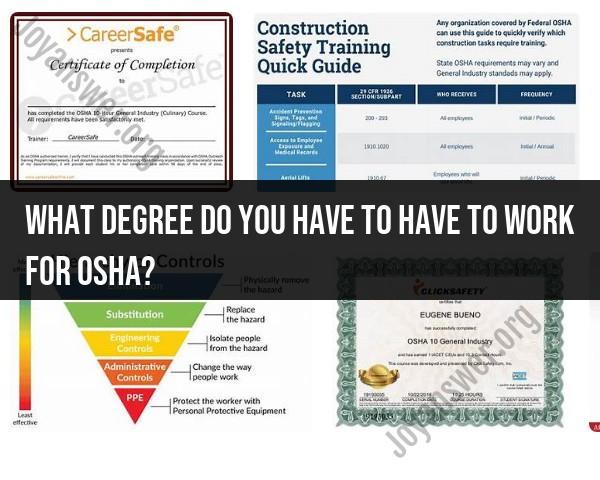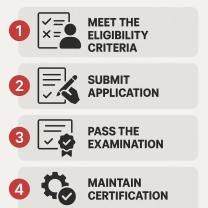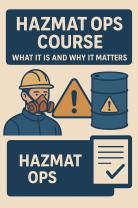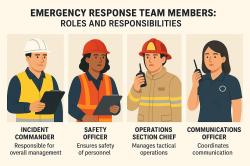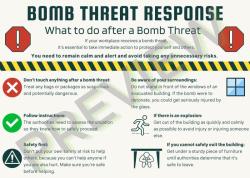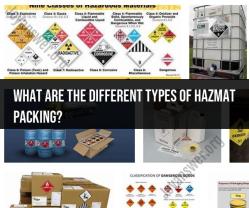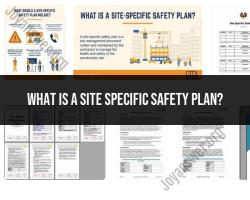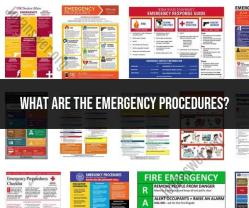What degree do you have to have to work for OSHA?
Working for the Occupational Safety and Health Administration (OSHA) typically requires a combination of education, experience, and specific qualifications. OSHA employs professionals in various roles, including occupational health and safety specialists, compliance officers, industrial hygienists, engineers, and more. The educational requirements for these positions can vary based on the specific job duties and responsibilities. Here's a general overview:
1. Occupational Health and Safety Specialists:
- Education: Many occupational health and safety specialists have a bachelor's degree in occupational health and safety, environmental science, industrial hygiene, or a related field.
- Qualifications: Some positions may require additional certifications or qualifications such as the Certified Safety Professional (CSP) designation.
2. Compliance Officers (Inspectors):
- Education: A bachelor's degree is typically required for compliance officers. Relevant fields of study include occupational health and safety, industrial hygiene, environmental science, or a related discipline.
- Qualifications: While not always required, professional certifications such as the Occupational Health and Safety Technologist (OHST) or Certified Safety Professional (CSP) can enhance qualifications.
3. Industrial Hygienists:
- Education: Industrial hygienists often hold a bachelor's or master's degree in industrial hygiene, occupational health, chemistry, or a related field.
- Qualifications: Professional certifications, such as the Certified Industrial Hygienist (CIH) credential, are commonly sought by industrial hygienists.
4. Engineers:
- Education: Engineers working for OSHA may hold a bachelor's or master's degree in engineering, with a focus on safety, environmental, or industrial engineering.
- Qualifications: Professional engineering licensure may be required or preferred, depending on the specific engineering role.
5. Safety and Health Managers:
- Education: Safety and health managers often have a bachelor's or master's degree in occupational health and safety, safety management, or a related field.
- Qualifications: Professional certifications such as the Certified Safety Professional (CSP) or the Associate Safety Professional (ASP) can be beneficial.
6. Medical Professionals:
- OSHA may employ medical professionals such as occupational health nurses or physicians.
- Education: Medical professionals typically need to have a relevant medical degree (MD, DO, or nursing degree).
- Qualifications: Certification in occupational health nursing or other relevant medical certifications may be required.
General Qualifications and Skills for OSHA Positions:
- Experience: Depending on the position, relevant work experience in occupational safety and health, industrial hygiene, or a related field may be required.
- Certifications: While not always mandatory, certifications from recognized professional organizations, such as the Board of Certified Safety Professionals (BCSP), can enhance qualifications.
- Knowledge of OSHA Regulations: Familiarity with OSHA regulations and standards is essential for most positions within the agency.
- Communication Skills: Strong communication and interpersonal skills are often required to interact with employers, workers, and other stakeholders.
It's important to review specific job postings on the official OSHA website or other government employment websites for the most accurate and up-to-date information regarding educational and qualification requirements for specific positions. Additionally, OSHA may have internship or entry-level programs for recent graduates or those seeking to gain experience in occupational safety and health.
What educational background or degree is typically required to pursue employment opportunities with OSHA (Occupational Safety and Health Administration)?
The educational requirements for working at OSHA can vary depending on the specific position you're interested in. Here's a breakdown:
General Requirements:
- U.S. citizenship: All positions at OSHA require U.S. citizenship.
- Bachelor's degree: Most professional positions at OSHA require a bachelor's degree in a relevant field, such as safety, engineering, environmental science, public health, or business administration.
- Relevant experience: Prior experience in occupational safety and health or a related field can be a significant advantage, even if a specific degree isn't required.
Specific Positions:
- Compliance Officers (Safety and Occupational Health Specialists, Industrial Hygienists, Safety Engineers): These positions typically require a bachelor's degree in a relevant field and three years of professional experience in occupational safety and health.
- Inspection Safety Technician: This position requires a bachelor's degree in a relevant field or two years of college coursework plus two years of experience in occupational safety and health.
- Safety Program Specialist: This position requires a bachelor's degree in a relevant field and one year of experience in developing and implementing safety programs.
- Research Analysts: These positions typically require a graduate degree in a relevant field, such as public health, statistics, or epidemiology.
Alternative Paths:
- Internships: OSHA offers internship programs for undergraduate and graduate students interested in safety and health careers. These can be valuable opportunities to gain experience and build connections.
- Federal Job Training: The U.S. government offers various training programs for federal employees, including safety and health training. These can be a good option if you don't have a relevant degree or experience.
- Military Service: Veterans with experience in safety and health may be eligible for positions at OSHA through veterans' preference programs.
Additional Resources:
- OSHA Career Center: https://www.osha.gov/careers
- USAJOBS: https://www.usajobs.gov/
- National Institute for Occupational Safety and Health (NIOSH): https://www.cdc.gov/niosh/index.htm
- American Society of Safety Professionals (ASSP): https://www.assp.org/about
Remember, the key is to research specific positions you're interested in and ensure you meet the education and experience requirements. Don't hesitate to network with people who work at OSHA or in related fields to learn more about career paths and opportunities.
I hope this information helps you navigate your career path towards OSHA!
